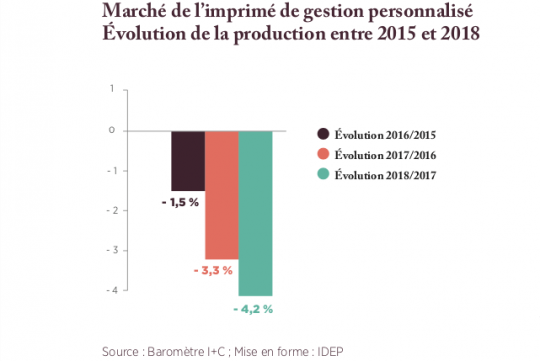The latest annual report edition of the Idep, "?Regards on the communication markets graphique?" published in November 2019, highlights the evolution of the various printing markets, including that of administrative or commercial printing, whether personalised or not.
The personalized management printout
The report, which is based on 2018 data, indicates that the production of personalised business forms has fallen more sharply than in previous years: - 4,2 %.

Objective of dematerialization of public services
Although administrative or management letters are still massively distributed and read, their dematerialization is more and more advanced, says the Institute. The "?Action Publique 2022?" programme aims to dematerialise public services by 2022.
But in 2019, the Defender of Rights submitted a report on dematerialization and inequalities of access to public services, explains the Idep. "?Le Defender of Rights highlights in particular a social and territorial divide in access to the Internet and computer equipment.?» The Defender of Rights recommends that dematerialised administrative procedures should therefore remain a possibility but not an obligation.
The various studies and surveys carried out among Europeans point in the same direction: the vast majority of the population believes that they should have the right to choose the medium of communications from their banks and other providers.
Administrative and commercial printed matter
Production of non-personalized administrative and commercial printing decreased slightly by 0.2%. This stability is explained in particular by the electoral context: the 2017 presidential elections and the 2018 European elections.







